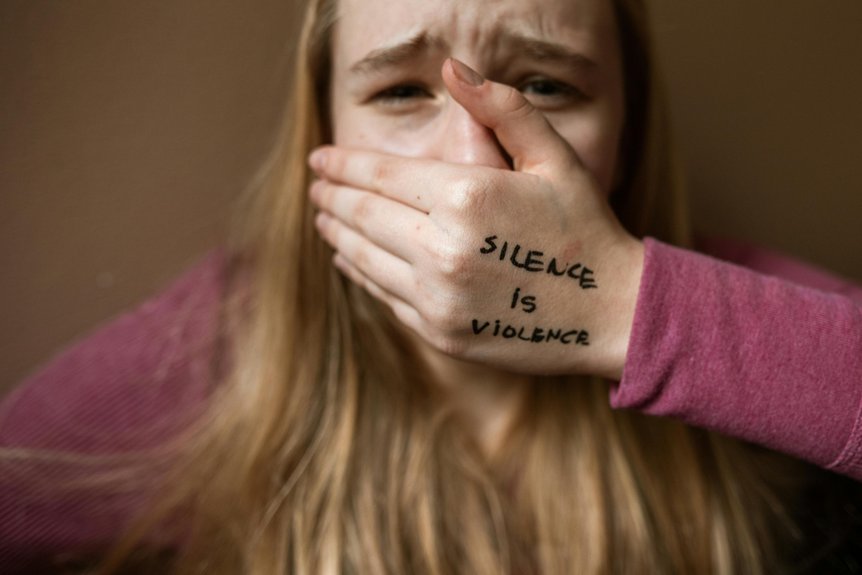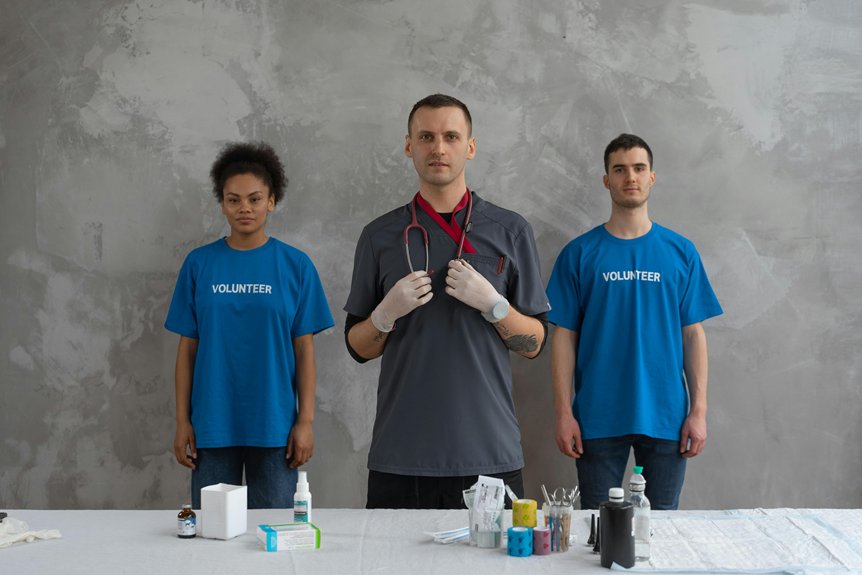The Surgeon General recognizes gun violence as a pressing public health crisis that warrants immediate intervention. With a focus on data-driven approaches, this perspective highlights the complex interplay between gun violence and its effects on community health. Understanding these implications is essential for developing effective policies. What specific strategies could effectively address these challenges and promote safer environments for all?
Key Takeaways
- The Surgeon General views gun violence as a significant public health crisis impacting community well-being and healthcare systems nationwide.
- Emphasizing data-driven approaches, the Surgeon General advocates for analyzing trends and health impacts to inform policy recommendations.
- Community engagement and education are crucial for preventive measures against gun violence, fostering trust among residents and local organizations.
- Prioritizing mental health support is essential for recovery among gun violence survivors, addressing PTSD, anxiety, and collective trauma in affected communities.
- Comprehensive policies, including universal background checks and gun safety legislation, are necessary to enhance public safety and community health.
Understanding Gun Violence as a Public Health Issue
While many view gun violence primarily as a criminal justice issue, it’s essential to recognize it as a public health crisis that impacts communities across the nation.
Gun violence leads to significant morbidity and mortality, affecting individuals and families long after incidents occur. The Centers for Disease Control and Prevention (CDC) identifies gun violence as a leading cause of death, particularly among young adults.
This crisis places a strain on healthcare systems, while also perpetuating cycles of trauma and mental health issues. By framing gun violence within the context of public health, you can better understand its broader implications for community well-being.
The Role of the Surgeon General in Addressing Gun Violence
The Surgeon General plays a critical role in framing gun violence as a public health issue, emphasizing the need for data-driven approaches.
By analyzing trends and health impacts, the Surgeon General can provide informed policy recommendations and initiatives aimed at reducing gun-related injuries and deaths.
This position not only advocates for effective interventions but also engages communities in preventive measures.
Public Health Perspective
As gun violence continues to rise, the Surgeon General plays an essential role in framing this issue as a public health crisis.
By emphasizing the need for public awareness and health education, the Surgeon General can effectively mobilize communities to confront this challenge.
You’ll notice that prioritizing data-driven strategies allows for better understanding of gun violence’s impacts on overall health.
Through campaigns, the Surgeon General can disseminate critical information, fostering dialogue and encouraging preventive measures.
Policy Recommendations and Initiatives
Given the pressing nature of gun violence, policy recommendations and initiatives spearheaded by the Surgeon General are essential for effective intervention.
You should consider the importance of robust policy frameworks that prioritize public safety and mental health support. Engaging communities in these initiatives fosters local ownership and guarantees that solutions are tailored to specific needs.
Evidence shows that integrating community engagement not only enhances trust but also increases the likelihood of successful outcomes. By advocating for thorough data collection and collaboration with local organizations, the Surgeon General can lead the charge in addressing gun violence as a critical public health issue.
Statistical Overview of Gun Violence Trends
In recent years, gun violence has surged, with statistics revealing alarming trends across various demographics and regions. The following table summarizes key gun violence statistics from 2018 to 2022, highlighting the trend analysis:
| Year | Total Incidents | Victims |
|---|---|---|
| 2018 | 14,000 | 25,000 |
| 2019 | 15,400 | 27,000 |
| 2020 | 19,400 | 43,000 |
| 2021 | 20,200 | 40,000 |
| 2022 | 21,500 | 45,000 |
These figures underscore the need for effective interventions to address the growing public health crisis surrounding gun violence.
The Impact of Gun Violence on Mental Health
Gun violence doesn’t just affect physical safety; it also takes a heavy toll on mental health. Survivors often experience symptoms of PTSD, anxiety, and depression, which can hinder trauma recovery.
The emotional scars left by such violence can linger long after the incident, impacting relationships, work, and overall quality of life. Communities affected by gun violence face collective trauma, leading to increased stress levels and a pervasive sense of fear.
Addressing mental health needs is vital for effective recovery, as it fosters resilience and helps individuals and communities heal from the psychological effects of violence.
Prioritizing mental health is essential for lasting recovery.
Physical Health Consequences of Gun Violence
While many people focus on the immediate aftermath of gun violence, the physical health consequences extend far beyond the initial injuries.
Gunshot injuries often lead to significant trauma that can cause long-lasting effects on the body. Survivors may face complications such as infections, chronic pain, and mobility issues, which can hinder daily activities and overall quality of life.
Additionally, the process of trauma recovery may involve extensive medical treatments, rehabilitation, and mental health support. Understanding these consequences is vital for implementing effective public health strategies aimed at reducing gun violence and supporting affected individuals in their healing journeys.
Community-Level Effects and Vulnerable Populations
When communities experience gun violence, the ripple effects can greatly impact vulnerable populations.
These incidents often erode community resilience, leading to heightened fear and mistrust among residents. Vulnerable communities, including low-income neighborhoods and those with limited access to resources, face increased psychological stress and social disintegration.
Children growing up in these environments may struggle academically and emotionally, further perpetuating cycles of disadvantage.
Addressing the effects of gun violence requires targeted interventions that bolster community resilience, ensuring that resources and support reach those most affected.
Recognizing and supporting these vulnerable populations is essential for fostering safer, healthier communities.
The Importance of Data and Research in Gun Violence Prevention
Understanding gun violence requires robust data and thorough research, which are essential for effective prevention strategies.
When funding for research is prioritized, you enhance the ability to analyze trends and identify effective interventions.
Furthermore, systematic data collection helps inform policymakers and the public, leading to informed decisions that can ultimately reduce gun violence.
Role of Research Funding
Research funding plays an essential role in shaping effective strategies for gun violence prevention, as it enables scientists and policymakers to gather and analyze data that inform best practices.
By allocating resources to specific research priorities, funding sources can greatly influence the direction of studies and interventions. This targeted investment not only enhances understanding of the factors contributing to gun violence but also supports innovative approaches to prevention.
When researchers receive adequate funding, they can produce robust evidence that guides policies, ultimately leading to more informed decisions aimed at reducing gun violence and improving public health outcomes.
Impact of Data Collection
While the complexities of gun violence demand urgent attention, effective prevention strategies hinge on accurate and thorough data collection.
Understanding gun violence relies on data transparency to identify trends and inform policies. Yet, significant data gaps hinder our ability to address this crisis effectively.
- Extensive datasets help to pinpoint high-risk areas.
- Analyzing firearm-related incidents can uncover underlying causes.
- Improved data collection fosters collaboration among researchers, policymakers, and communities.
Comprehensive Strategies for Addressing the Crisis
As gun violence continues to surge across the nation, it’s crucial to adopt thorough strategies that address the multifaceted nature of this crisis.
Education initiatives can empower individuals with knowledge about conflict resolution and the dangers of gun misuse. By targeting schools and community centers, these programs can foster safer environments.
Additionally, community outreach efforts are essential for building trust and collaboration among residents, law enforcement, and local organizations. Engaging community members in dialogues about gun safety and violence prevention creates a supportive network.
Together, these strategies can effectively reduce gun violence and promote a healthier, safer society.
Call to Action: Policy Recommendations and Initiatives
Addressing gun violence requires bold policy recommendations and initiatives that prioritize public safety and community well-being.
Combatting gun violence demands courageous policies and initiatives that focus on enhancing public safety and fostering community health.
You can contribute to effective solutions through:
- Community engagement: Foster local programs that educate about safe gun practices and promote conflict resolution.
- Legislative advocacy: Support laws that implement universal background checks and restrict access to firearms for high-risk individuals.
- Collaborative research: Encourage studies that evaluate the impact of gun violence interventions, ensuring data-driven approaches.
Conclusion
In summary, addressing gun violence as a public health crisis requires a collaborative effort focused on data-driven strategies. By prioritizing research, community engagement, and targeted interventions, we can mitigate the devastating effects of gun violence on mental and physical health. It’s essential to advocate for thorough policies that protect vulnerable populations and foster safer communities. Together, we can create a more informed and effective response to this urgent public health issue.




